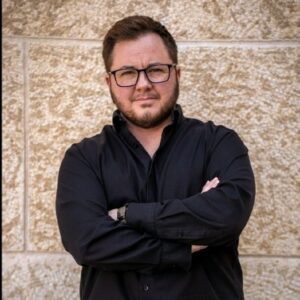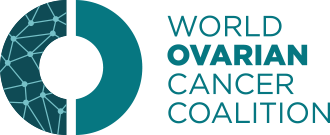 By: Tristan Bilash (he/him/human)
By: Tristan Bilash (he/him/human)
The first time I was called a unicorn, was in the early 2000’s during my first semester of university. A fellow classmate, who arrived in Canada just 24 hours before, promptly asked me out on a date after I held a door open for him. He was serious. I was serious as well when I respectfully declined his invitation and informed him that I only dated women. (Spoiler alert: I presented as a woman back then.) He declared there was no such thing as a lesbian or a gay woman and explained in his home country, only men could be homosexual, and if they were, they would be jailed, or worse. As he walked away, he scoffed, “You are a unicorn – you don’t exist.”
I can’t say that I was devastated by this declaration. To a degree, I was already tempered by repeatedly hearing people like me were delusional about our sexual orientation and gender.
During this same time, my main concern was fielding multiple medical appointments to get to the root of symptoms I had been struggling with since my early teen years. The answers I received were little more than the familiar suggestions to add fibre to my diet or that I needed anti-depressants.
By my late 20s, I was exhausted from years of medical tests and symptoms written off as irritable bowel syndrome or depression. After an extremely gruelling experience, where abdominal pain took me to the floor of a bathroom for hours, I asked my family physician if I might have cancer of some type. Honestly, I didn’t know much about cancer at the time. While the physician shook his head several times and informed me it was highly unlikely I had cancer, as I was “too young”, before I left his office I convinced him to arrange a colonoscopy and pelvic ultrasound for peace of mind.
The very last time I met with that physician was post-surgery (hysterectomy, double oophorectomy, debulking of tumour) for stage IIIC low grade serous ovarian cancer. He clearly hadn’t read my chart before meeting with me that day as the shock on his face said it all when I told him about my diagnosis. I was 30 years old with advanced ovarian cancer – again somewhat of a unicorn.
Fast forward almost 20 years and things have considerably changed. If my headshot for this blog doesn’t give away the reveal: I am a man of trans experience. The removal of my cancer-laden gynecological parts did not contribute to me being trans as I knew that I was a boy when I was four years old. As it turned out, my ovarian cancer surgery greatly reduced the amount of gender dysphoria and related depression I struggled with for so long.
In addition to being transgender and an ovarian cancer survivor, I’ve worked in oncology almost 15 years. These three facets of my being intersect on so many levels, and sometimes it’s overwhelming. Before my gender affirming medical transition, I was more forthcoming with clients/patients about my ovarian cancer experience if I assessed the self-disclosure was helpful to build rapport. I’m more guarded now as sharing my diagnosis inevitably means further conversation about my gender. I never used to have to think about my personal safety when sharing about my ovarian cancer – now it’s often top of mind.
I am keenly aware that my physical appearance would have allowed me to melt easily into the background and live a quieter life. This “passing privilege”, as some call it, means that unless I told you up front, you would be hard pressed to know I was a transgender man. So why give up anonymity and perceived safety to be public about being a transgender man and ovarian cancer survivor? Because of Robert Eads.
Robert is often featured in my presentations and writings. His heartbreaking story about struggling to find someone willing to treat his ovarian cancer because he was transgender is reflected in the 2001 award-winning documentary Southern Comfort. I won’t ever forget the catharsis I felt as I watched the movie for the first time. I was equally relieved, humbled, and devastated. Relieved I finally found someone like me: a transgender man with advanced ovarian cancer. Humbled to be privy to glimpses of the last year of Robert’s life. Devastated because Robert’s emotional and physical suffering could have been prevented.
And a part of me was shattered because I felt I was a lone unicorn again. I continued to search for programs and supports for 2SLGBTQIA+ [1] cancer patients often to no avail. Those I could find were usually geared towards gay men with prostate cancer or lesbians with breast cancer – reflecting the available research at the time. I had to believe I wasn’t the only transgender man with ovarian cancer in the world – but it honestly seemed most times that it was just Robert and I.
In 2020, I was invited to provide a keynote speech for the Canadian Association of Psychosocial Oncology (CAPO)’s national conference. I had presented to groups before, but this was the furthest reaching audience by far. I knew I would have a lot to share that those of us who work in oncology hadn’t thought about before. Given the warm gracious response and feedback, I was right. From that moment, I knew I would do everything I could to deepen the anchor Robert Eads’ story was for me for so many years. For him and so many others, I would be as visible as possible to improve transgender cancer care experiences moving forward.
March 31st is the International Transgender Day of Visibility – a day of celebration and awareness. Today I am visible for those who can’t be. They can’t be because either they aren’t ready or don’t want to be. They can’t be because they live somewhere they will be harmed, or lose their job, their home, or even their life. And today, I am also visible on behalf of transgender cancer patients, and men with gynecological cancers especially.
Today, I am also very mindful what my visibility means in ovarian cancer spaces, “women’s” healthcare offices, and gynecological conferences. I hope it means I help people think of things they haven’t thought of before, and they take action to transform their approaches to caring for their transgender clients/patients. Ultimately, helping improve cancer research and care for people like me helps improve care for everyone.
The irony is not lost on me that while I’m very private about my cancer and gender history closer to home, I’m also an international speaker and transgender cancer care advocate. But I can’t help but stand out and stand up where I can in the hopes of getting that much closer to #NoPersonLeftBehind. After all, standing out and being noticed is exactly what unicorns do best.
Tristan Bilash (he/him/human) is a registered social worker, community partner with QueeringCancer.ca, 2SLGBTQIA+ representative for the CAPO’s Advocacy Committee, and a friend and advisor to the World Ovarian Cancer Coalition. He lives in Canada.
[1] Two-Spirit*, Lesbian, Gay, Bisexual, Transgender (including non-binary, agender, genderfluid), Queer, Intersex. Asexual, other included identities. Two spirit is used among Indigenous peoples around the world but heard more in North America. According to the Public Service Alliance of Canada with 2S at the beginning, this acronym further acknowledges the fact that Indigenous peoples were the first to build communities that honoured sexual and gender diversity in this land.
